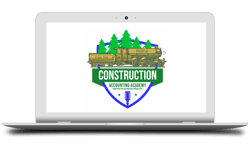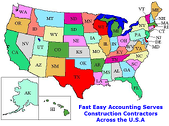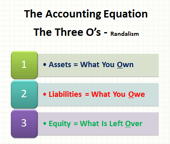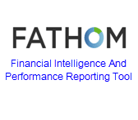How Smart Money Management Keeps Your Business Profitable and Stress-Free
When most small construction business owners think about success, they envision a steady stream of jobs, high-quality work, and satisfied clients. But there’s another side to the story that often gets ignored: the financial health of your business.
And here’s the truth we see every day as construction bookkeeping specialists: Even skilled contractors with full calendars can run into cash flow problems, tax stress, or profit shortfalls—not because of the work, but because of the numbers.
That’s where Pillar 2: Controlling the Money comes in. In this post, we’ll talk about how to take control of your finances through simple, construction-friendly accounting practices—so you can stop guessing and start growing.

In construction, money doesn’t flow evenly. You might spend thousands on materials before getting paid. You may win one big job and then go three weeks without a deposit. Labor and equipment costs can shift mid-project. It’s a juggling act.
That’s why proper accounting isn’t just about keeping the IRS happy—it’s about:
- Knowing your job costs
- Pricing with confidence
- Keeping cash flow steady
- Making better business decisions
- Staying compliant and audit-proof
If your books are messy, late, or nonexistent, you’re flying blind. However, when your numbers are precise and current, you can run your business, not just react to it.
Let’s start with the most common money-related problems we help contractors fix:
1. Bidding Without Knowing Actual Costs
Many contractors “guesstimate” job prices based on experience rather than actual data. However, with inflation, labor fluctuations, and new materials, those estimates can quickly lead to underbidding and lost profits.
2. Mixing Personal and Business Finances
Swiping your business card for groceries or buying tools with your debit card? That’s a fast track to messy books and missed deductions.
3. Falling Behind on Invoicing or Collections
Delaying invoices or avoiding follow-ups means delayed payments—and often, unpaid work.
4. Ignoring Overhead
Suppose you only account for direct costs (such as materials and labor) and overlook indirect costs, including your phone bill, fuel, insurance, and software subscriptions. In that case, you’ll never see your actual profit.
5. No Real Cash Flow Planning
Not knowing how much is coming in or going out in the next 30 days can lead to bounced checks, late payments, and last-minute borrowing.
Sound familiar? Let’s fix that.
Here’s how we help contractors like you get your finances under control without overwhelming spreadsheets or accounting jargon:
Job costing is the process of tracking every dollar that goes into each project, including labor, materials, subs, equipment, and overhead allocation (LMOS™).
- You’ll know which jobs are profitable—and which ones aren’t worth repeating.
- You’ll improve your estimates over time using real data.
- You’ll spot problems early (like a crew taking too long or material waste).
- Use separate expense categories for each job in your accounting software (or at least use tags/notes).
- Track time and material costs in real-time, not weeks later.
- Include a portion of your overhead per job (rent, insurance, admin time, etc.).
Even a basic spreadsheet is better than nothing. But ideally, use tools like QuickBooks with project tracking, or apps like Buildertrend that integrate with bookkeeping.
Cash flow isn’t the same as profit. You can make a $10,000 profit on paper, but still run out of cash if a client delays payment or if you pay subs too early.
- Helps you avoid shortfalls, late payments, or needing to dip into personal funds.
- It makes it easier to plan purchases or hire help when you can afford to do so.
- Create a weekly cash flow forecast:
- List all expected income and expenses by date so that you can plan around slow weeks or high-expense periods.
- Require deposits and progress payments on jobs.
- Set up reminders for invoicing and follow-ups to ensure timely payments.
A construction business with no cash cushion is one unexpected delay away from severe stress. Cash flow forecasting gives you breathing room and peace of mind.
Every month, you should be reviewing key reports that tell you how your business is doing, not just how you feel it’s doing.
- Profit & Loss Statement (P&L) – Are you making money?
- Balance Sheet – What do you own vs. owe?
- Job Profitability Reports – Which jobs performed best?
- Adjust pricing and scope when needed
- Spot overspending early
- Justify business decisions (such as hiring, purchasing equipment, or expanding)
- Get ready for taxes long before tax season
If your current bookkeeper isn’t giving you these reports—or if you don’t understand them—it’s time for a better system.
Here are a few more best practices we recommend for all small construction business owners:
Use a dedicated business checking account and credit card. It simplifies tax prep, reduces errors, and keeps you audit-ready.
Use apps like Hubdoc, Dext, or QuickBooks Online to snap and store receipts. Label them with the project name for faster reconciliation.
Generic accounting tools are sufficient, but platforms like QuickBooks for Contractors, Joist, or Buildertrend offer features specifically tailored to the construction industry, such as progress billing, time tracking, and job costing.
A bookkeeper who knows construction can save you hours of frustration—and thousands in missed tax deductions or mispriced jobs.
You wouldn’t build a house without a plan. So don’t run your business without a handle on your numbers.
Controlling the money through job costing, cash flow tracking, and monthly reporting allows you to:
- Price smarter
- Avoid financial surprises
- Protect your profit margins
- Make better growth decisions
You don’t need to become a financial expert. You need a system that gives you visibility—and a partner who can help you stay on track.
We specialize in helping small construction business owners like you:
- Set up or clean up their books
- Track job profitability
- Forecast cash flow
- Understand their financial reports
Let us know how we can help you. Book a free 30-minute consultation and take the guesswork out of your finances—so you can focus on doing great work.
About The Author:
 Norhalma Verzosa is a Certified Construction Marketing Professional and works as the Web Admin of Fast Easy Accounting located in Lynnwood, WA. She has a Bachelor's Degree in Psychology and a Certified Internet Web Professional with a Site Development Associate, Google AdWords Search Advertising, and HubSpot Academy certifications. She manages the entire web presence of Fast Easy Accounting using a variety of SaaS tools including HubSpot, Teachable, Shopify, and WordPress.
Norhalma Verzosa is a Certified Construction Marketing Professional and works as the Web Admin of Fast Easy Accounting located in Lynnwood, WA. She has a Bachelor's Degree in Psychology and a Certified Internet Web Professional with a Site Development Associate, Google AdWords Search Advertising, and HubSpot Academy certifications. She manages the entire web presence of Fast Easy Accounting using a variety of SaaS tools including HubSpot, Teachable, Shopify, and WordPress.
OUTSOURCED ACCOUNTING FOR
THE BUSY CONTRACTOR
IN A MOBILE ENVIRONMENT

|

|

|

|
Download the Contractors APP today from the App Store or Android Store
Access Code: FEAHEROS
Click here to download the App on Android:
Click here to download the App on iOS:
Simply scan the QR code or search for ‘MyAccountants’ in the App Store and enter the Access code: FEAHEROS to utilize the powerful App features and capabilities and benefit from having our Construction Accounting App at your fingertips, 24/7."
PS: Even if you are not a Construction Contractor, you will find plenty of benefits in the app, so we invite you to download it, too! It's Free, so why not?




























